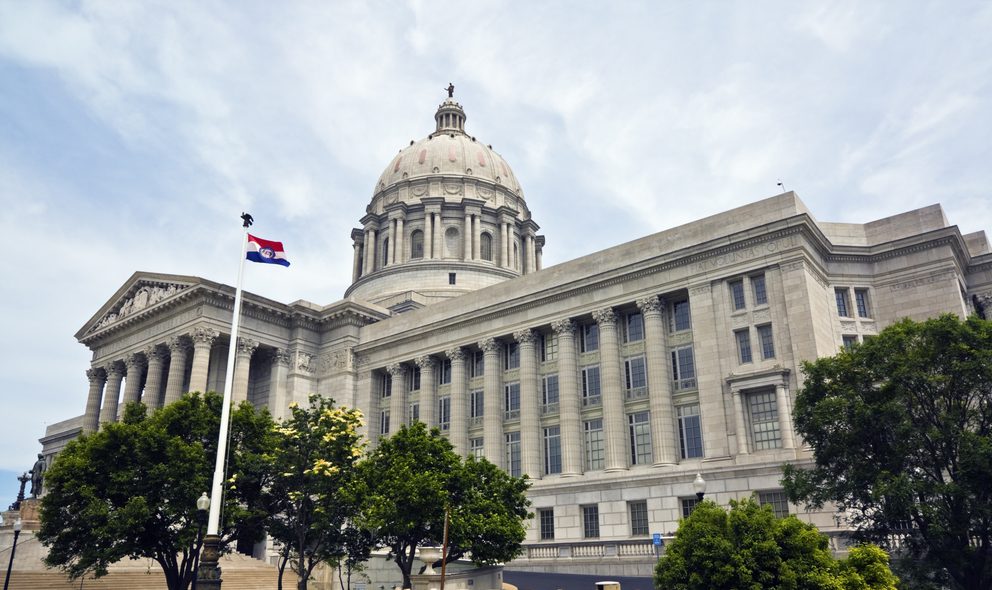 SBC’s VP Growth & Strategy, Americas Sue Schneider was asked to give her expert testimony last week as the state of Missouri weighs up its options for regulating for sports betting. Here she shares her perspective of the experience.
SBC’s VP Growth & Strategy, Americas Sue Schneider was asked to give her expert testimony last week as the state of Missouri weighs up its options for regulating for sports betting. Here she shares her perspective of the experience.
I had the privilege of testifying before the Missouri House Interim Committee on Gaming recently and their comments and questions were helpful in gauging the Committee’s view on the sports betting topic.
I was pleased to be testifying along with Chris Krafcik and Mark Balestra, former work colleagues from our River City Group days. Chris is now with Eilers & Krejcik as Managing Director of Sports Betting and Emerging Verticals. That firm has done a lot of work in determining what the annual revenues may be from legalized sports betting for all fifty states. He pointed out that the State of Missouri may be able to realize some $289 million in revenues at maturity if it allows land-based operators to offer mobile betting without requiring in-person registration. Without mobile, Krafcik’s estimate is more like $95 million in revenue.
Mark Balestra, now a practicing gaming attorney with Segev LLP, next offered up a chart of the 19 states that have authorized legal sports betting. His matrix illustrated how they’re structured from a regulatory standpoint as well as their tax rates and licensing fees among other information. As expected, the Representatives were very curious about what surrounding states are doing from a competitive standpoint, noting that some eight states border Missouri.
My presentation functioned as a primer on how mobile gaming works as well as some terms that may be new to them. I went through the various verifications that take place when an online account is opened. Explaining how geolocation works, age and ID verification, the checks for money laundering, responsible gaming and other standard processes in the industry was critical to let these policymakers know that these technologies existed. We also discussed things like in-game or in-play betting as well as the concept of “skins” which some states are adopting.
Next up were a variety of operators to give their thoughts. These included a number of operators who are among the 13 licensees in the State of Missouri. These included Boyd Gaming (2 casinos), Penn National (3), William Hill (partners with Eldorado which operates 5 casinos), DraftKings (partners with Penn National in other states) and FanDuel (partners with Boyd Gaming).
The operators were helpful in describing how the process works. They were supportive of remote registration and explained how cross-border competition was already happening along the Iowa border. It’s anticipated that when Illinois goes live and if Kansas legalizes the activity, this would further enhance the competition from operators in neighboring states. Rep. Jeff Shawan admitted that he’s never gambled on sports but would be in favor of remote registration since now everything is done on mobile devices, remarking that he wouldn’t drive somewhere if he could do it on his phone.
Before there was even a question about the possibility of “cannibalizing” the land-based customers who come into the casino, the operators noted how, in their facilities in other states, sports betting has increased their foot traffic and brought in new players who have not come to a casino before. They’re putting a bet down and staying to watch the game with friends.
During the three-hour hearing, there was healthy discussion about sports betting and the variety of issues which may arise as they look to develop legislation. Rep. Wes Rogers from the Kansas City area was quite outspoken on the topic. “I very much support legalized sports betting. I think it’s insane that something happens this blatantly, this regularly that we’re not regulating it, we’re not taxing it, we’re not making sure players are getting fair play. It’s time to do it.”
The Committee members seemed clear that sports betting was already going on in the state and that Missouri operators need to offer a full range of products at competitive pricing to migrate players away from offshore sites. Given the modest profit margin for sports books, Krafcik pointed to West Virginia’s $100,000 license fee and 10% tax on revenue as a sensible example. That concept seemed to resonate with some of the committee members.
There was also discussion on limits on markets or teams. Again, the committee members seemed to realize that if Mizzou fans can’t bet on their games due to a ban on college sports, those players will still find options where they can place a bet.
One issue which was interesting was the sports leagues’ request for an “integrity fee.” One of last year’s sports betting bills included that. Penn National’s Head of Sportsbook, Scot McClintic, countered that by explaining that his company already pays the leagues for their data. A deal with Sportradar already provides Penn National with official data from the NFL, NBA, MLB, he said. So, he noted, if a league fee is mandated in the legislation, it would essentially be “double dipping”. He added that a cost like that ends up trickling down to customer making the legal product less competitive.
I’m sure a counterargument will be presented on November 7 when some league representatives plan to testify in front of the committee.
Chairman Dan Shaul summarized much of the testimony as he wrapped up the hearing noting that for sports betting to be successful, it needs to be fair for the consumer and easy to use.
Two sports betting bills were filed in the 2019 session and one of those sponsors, Rep. Robert Ross, who sat on this committee said that he plans to introduce one again for the 2020 legislative session. Watch this space.













